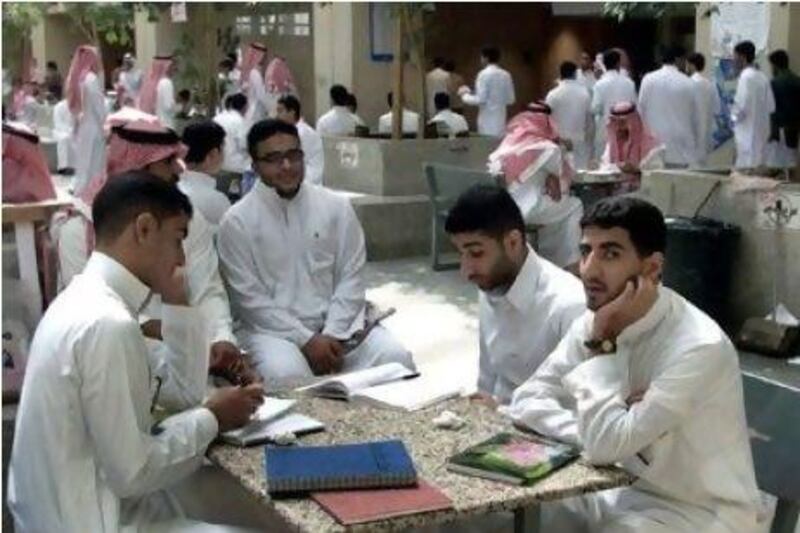JEDDAH // Labour markets across the GCC will have to accommodate twice as many national workers in the next seven years, according to the consultant McKinsey & Co.
How to create sufficient jobs for the millions of young nationals joining the workforce was among the most taxing issues on the agenda yesterday for business leaders and politicians who gathered for the first day of the Jeddah Economic Forum.
The event at the Red Sea resort takes place against heightened international focus on the Mena region as tensions persist from Tripoli to Manama.
Armed guards and military vehicles surrounding the entrance to the Hilton Hotel - the venue for the three-day gathering - provided a reminder of the uneasy regional backdrop to the forum.
The desire for faster reform has been a driver of unrest afflicting some regional economies in recent weeks. Unhappiness with a shortage of job opportunities has been a spark in many of the protests across the Mena region. Only 35 per cent of the GCC's working-age population are estimated to be employed, lower than in most other parts of the world.
"The question for the GCC is not the economy's ability to build jobs. The challenge for the GCC is to create employment for its citizens, its nationals," said Kito de Boer, the senior director for the Middle East of McKinsey.
The GCC had created more than three million jobs in the past five years, he said. However, over the same period it had added only 250,000 jobs for locals.
Saudi Arabia was facing a 33 per cent increase in its working-age population coming on to the market in the next few years, far higher than China, Mr de Boer said.
Across the GCC, economies would have to find double the number of jobs for nationals in the next seven years, he said.
Highlighting the acuteness of the region's labour challenge, it would be 150 years before the EU's workforce doubled.
In the US, the workforce would double in the next 70 years. Flexible immigration markets combined with rigid labour market rules resulted in a system where the private sector favoured foreign labour, Mr de Boer said.
Leaders of Saudi Arabia, Bahrain and Oman have stepped up efforts to create jobs and offer financial assistance to the jobless in recent months.
Yet some speakers at the forum said the onus for change should not just be on the private sector.
"Too long in the Middle East we have focused on the role of government," said Afiq Naqvi, the chief executive of the UAE private equity firm Abraaj Capital. "It's up to us as individuals to focus on entrepreneurship and focus on employment."
While regional events have hijacked the global economic agenda in recent weeks, the first day still provided opportunities for discussions on familiar topics.
Mohammed al Jasser, the governor of the Saudi Arabian Monetary Agency, spoke of the need for a more inclusive global monetary system after the global financial crisis to reflect the emergence of the euro, yen and, in time, China's currency as well as the US dollar.
The Group of 20 developed and emerging economies, which includes Saudi Arabia, had a responsibility to police the liberalisation of China's exchange rate regime, Mr al Jasser said. "US consumerism and China's tendency to over-invest and under-consume are more relevant in addressing imbalances than fixing exchange rates," he added.





